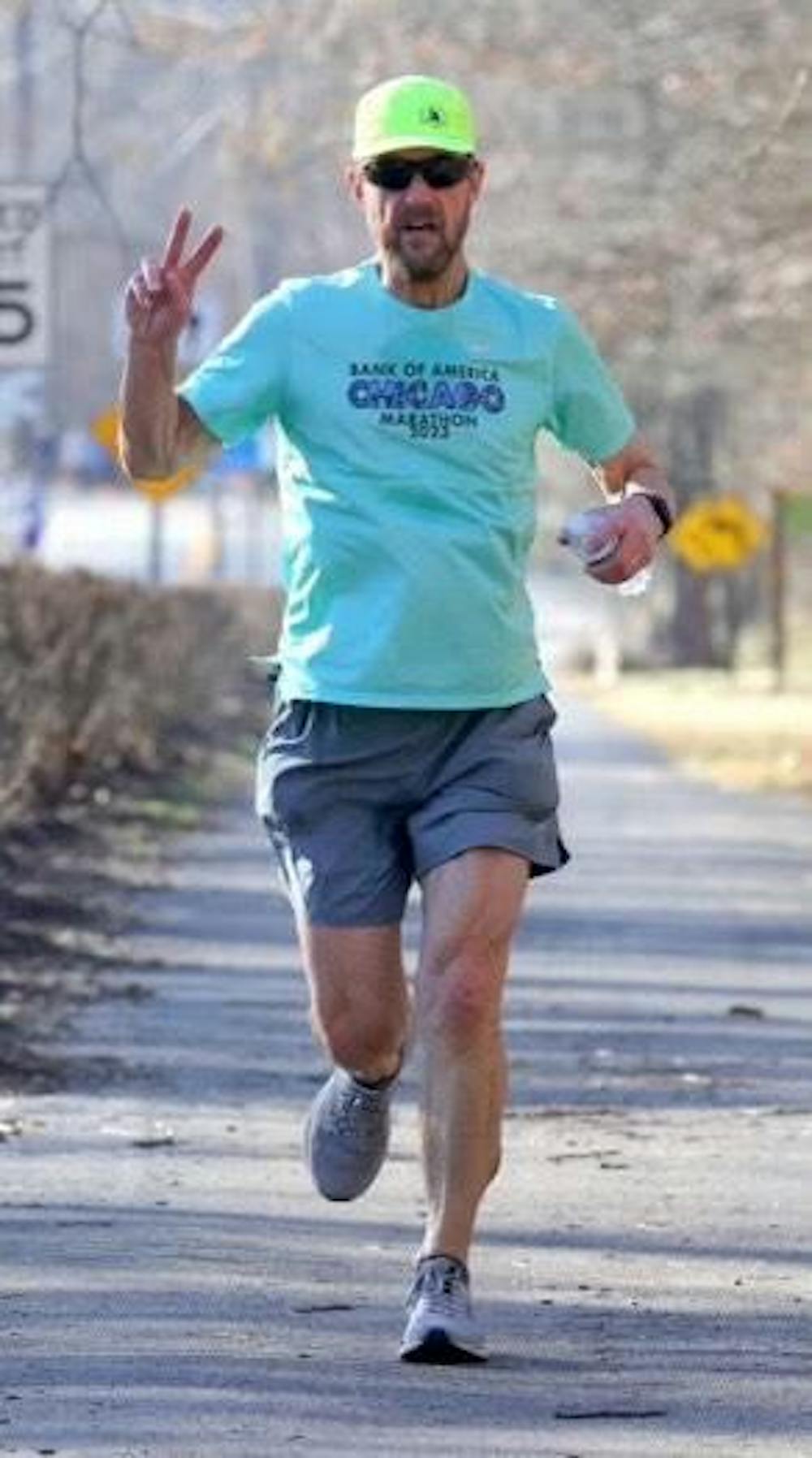There is nothing better than a close parking spot, at least, according to my mother. My dad’s opinion is so plainly contradictory that it really makes you believe in the whole ‘opposites attract’ thing: if presented with the option of a close parking spot or the farthest one at the edge of the lot, take the far one to maximize your daily step count. The minor additional exercise each day can lead to a notable physical change for the better.
When faced with a choice regarding the proximity of her parked automobile, my mom favors convenience. My dad chooses deliberate inconvenience, a purposeful detriment in order to achieve some physical benefit. Dad is an elementary school physical education teacher who, by the time this column is published, will have just completed his 18th marathon. Mom, on the other hand, is the type of person who dreaded PE class as a young girl, who much prefers to read about lengthy and arduous physical endeavors rather than partake in them.
Though the physical may be a point of disparity for my parents, both agree that, when it comes to mental challenges, one must always opt for deliberate inconvenience — or at least, one should try to avoid any intellectual ‘close parking spots.’ They believe that there is opportunity in academic adversity. They like to play sudoku in the morning and read novels at night (“Horatio Hornblower” for my dad, and any story featuring a Southern housewife for my mom). They encourage bold philosophical debates about situations that, to any typical observer, would not encourage bold philosophical debates.
It is probably easier to not have bold philosophical debates about banal things like playing pickleball at a local Missouri park. It is easy to wake up and not do a sudoku, or to put your pencil down when the sudoku goes awry and you can’t figure out where that stupid little seven goes. It is easy to close a book that bores you, to opt for TikTok instead of “Of Mice and Men” or to take the class that you know is a ‘blowoff’ instead of the one that requires three papers and a bluebook written exam. I can’t tell you how many conversations I’ve overheard in which students cross-examine their peers for the names of “easy A” courses. For Notre Dame students, the search to find a second theology that doesn’t require any reading or a professor that believes in un-grading is as toilsome and frenetic as any search can be. We all want to find a class that promises convenience. We all want the “close parking spot” elective.
When did we become so obsessed with finding the easy way out? I am not denying that I have been a part of this search myself. I understand the appeal of the ‘blowoff’ course (amidst our millions of other commitments, no one wants to have to sit through a complicated chemistry lecture). But at times, college feels to me like the perpetual calculation of what variables will maximize one’s GPA, while minimizing one’s mental efforts.
Did we always used to think like this? I recall a time when each of us must have fallen in love with learning, with continually choosing to study hard topics. Perhaps we only selected those AP courses and strenuous extracurriculars with hopes of getting in to Notre Dame. But surely, we would’ve known then that Notre Dame is the premier Catholic institution in the world and, subsequently, that Notre Dame would be very mentally challenging. We would have understood that courses taught here would be difficult and should be difficult. Otherwise, the title of a top-20 university would be undeserved.
If convenience were a commodity, it would be indefinitely backlogged. We live in the age of convenience. We buy convenience when we plug in our homework questions to ChatGPT, when we use our Apple watch to call our phone so we don’t have to physically leave our bed to go and find it, or when we dig a Trader Joe’s meal out of our freezer, rather than purchase the ingredients to cook a homemade meal. Do all these small conveniences we rely upon every day reflect a larger cultural shift away from things that challenge us in a good way?
Sometimes, discomfort is a positive thing. Challenge — whether physical or mental — is the only way we grow. The ancient Greeks knew this, which is why they questioned everything around them, developing the system of logos. The Keough School of Global Affairs knows this, which is why they print flyers to remind students that “You can do hard things” (in fact, we all came to this school in order to do hard things!). Marcus Freeman knows this, which is why he encourages our football team to “choose hard” in and out of the stadium. If we elect for a difficult second theology rather than continuing our infinite search for the ‘blowoff’ course, we ‘choose hard.’ And when we ‘choose hard,’ we may find that the minor additional exercise each day leads to a noticeable change for the better. A strengthening of ourselves.
Gracie Eppler is a senior business analytics and English major from St. Louis, MO. Her three top three things ever to exist are '70’s music, Nutella and Smith Studio 3, where she can be found dancing. You can reach her at geppler@nd.edu.










